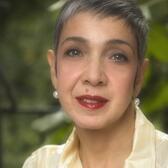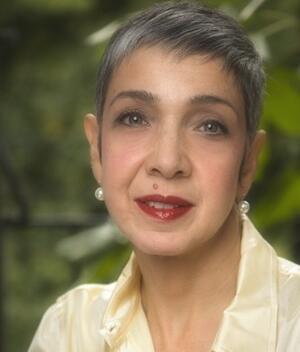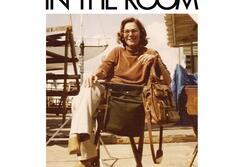My Words, My Practice: An Author's Reflection on Writing Jewishly
There are as many forms of Jewish religious expression as there are Jews. For some of us, it is the hush of the Sabbath that is most meaningful; for others, it is the awe and majesty of the High Holidays and for yet others, it is the promise of renewal offered by Pesach. Chasidic Jews find joy in their adherence to the law, while secular Jews place less emphasis on strict observance, and more on cultural affinity and the ethical framework that Judaism provides.
But I would venture that my own form of religious expression is uncommon if not unique. As the child of American parents who spent nine years in Israel (my brother and I were both born there) I was raised in New York City with Zionism as my religion. My parents were passionately attached to their Jewish identities, but this passion did not translate into any form of religious affiliation or observance. We did not belong a synagogue or Jewish center; we did not celebrate any of the holidays. My brother and I did not go to Hebrew school and he did not have a bar mitzvah. This pattern followed me into adulthood and I remain an unobservant member of my faith.
And yet when it comes to my life as a writer, I find that I return again and again to my Jewish heritage and I would go so far as to say that writing, especially the writing of fiction, is my own devoted, if idiosyncratic, form of religion.
Sometimes the connection is quite obvious, such as in the choice of subject matter. My children's books, like The Doll With the Yellow Star, The Doll Shop Downstairs and Cats in the Doll Shop all deal with Jewish characters, themes, and settings. Yellow Star is set in Paris, during the Nazi Occupation; the two Doll Shop books are set on the Lower East Side of New York City during 1914-1915, and the main characters are Jewish immigrants or newly arrived Jews. In my adult work, I frequently deal with Jewish subject matter, as in the collection of short stories I have written, many of which take place in Israel of the late 1940’s and early 1950’s—the same years my parents spent in the fledgling nation. My fourth novel, A Wedding in Great Neck, takes place in a single day as the members of an extended Jewish family convene for the nuptials of the youngest daughter. Two of a Kind, the novel that followed, deals directly with intermarriage, a subject relevant to the contemporary Jewish community.
But I have discovered that even when there seems to be little or no overt Jewish content, the forces that have shaped me are still at work. Case in point is my most recent novel, You Were Meant for Me. For me, writing a novel usually begins with a character tapping me on the shoulder and whose insistent whisper in my ear urges to me to get the story down, and to get it right. But the inspiration for You Were Meant for Mecame in a different way: an actual news item in which a man found a newborn infant on a subway platform and eventually ended up adopting him.
The story would not leave me, and I found myself returning to it again and again in my mind. What had driven that baby’s mother to leave him not in a hospital, police or fire station—safe havens, all—but on a subway platform? And what random stroke of luck or divine intervention averted all the horrific ends to this tale—and there could have been so many—and instead turned it into one of salvation and grace?
As I mulled over these questions, it occurred to me that the story was working on another level as well, one that was both mythic and archetypal. The foundling, the infant abandoned and rescued, is motif that occurs over and over in literature and can trace its roots as far back as the Bible. Wasn’t Moses himself a foundling, set in the ark and concealed in the bulrushes by Yocheved, whose fear for his life was so great that she was willing to give him up to save him? And wasn’t Moses rescued by the most unlikely of saviors, an Egyptian princess who found and then raised him as her own?
It was the Moses connection the clinched it for me; this story was too good, and had too much in it, to leave alone: I had to write it. But because I am a novelist and not a journalist, I made several important changes along the way. I turned the man of the real story into Miranda Berenzweig, a single Jewish woman who has not thought of having a child but whose biological clock is nonetheless ticking loudly. I changed the baby boy to a girl. And unlike the real story, in which no one came forth to claim the child, I introduced the birth father, a successful black real estate broker who did not know he had a daughter. Once his paternity is proven, he steps up to claim her.
This plot turn raised issues about what makes a good or fit parent and once again, I found myself in Biblical territory, this time in the story of Solomon who must adjudicate between two women who come to him with an infant each swears is her own. Both of my characters have a claim to the baby as well, but which claim should prevail? That was what I attempted to work out on the page.
Novels can come from surprising sources and lead to equally surprising destinations. I did not know that my reconfiguring a contemporary news story would take me back to the ancient stories that are part of my heritage, and that those stories in turn would offer a surprisingly modern lens through which to view the world. I do not keep kosher or observe the holidays. And yet I am proudly, indelibly Jewish—an identity that is most evident on the printed page.








